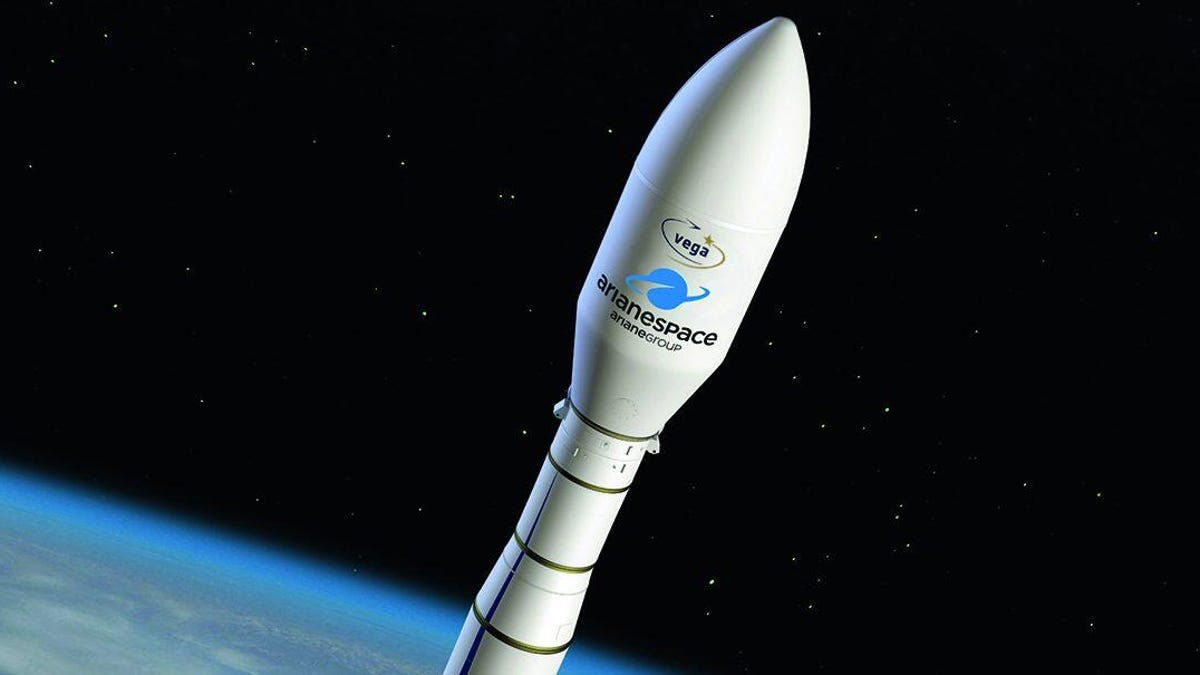European Vega launch fails, capping a horrible 2020 for rockets, too
An Arianespace Vega rocket didn't make it to orbit, adding to one of the worst years for launch attempts in half a century.

An illustration of a Vega rocket.
French rocket maker Arianespace confirmed Tuesday that one of its Vega rockets failed to deliver two European satellites to orbit and instead fell back to Earth in a "completely uninhabited area."
The unsuccessful launch is the ninth time an orbital mission has failed to hit its mark in 2020, the most failures in a calendar year since 1971, according to Jonathan McDowell, an astronomer at the Harvard-Smithsonian Center for Astrophysics who meticulously monitors launches and other orbital happenings.
Tonight's Vega failure is the 9th failed orbital launch attempt in 2020 - the worst year since 1971 in that respect.
— Jonathan McDowell (@planet4589) November 17, 2020
I've been telling people for months now that 2020 has been a better year in space than on Earth, given successful landmark missions like NASA's DM-2, Crew-1 and Osiris-Rex, but the raw data shows 2020 hasn't been great for launches, either.
You might assume we're seeing more failures because there are surely more launch attempts in 2020, but McDowell says that's not the case.
"Mostly it's a consequence of a lot of first flights of new vehicles," he wrote on Twitter.
The list of attempts that didn't go quite as hoped include Virgin Orbit's first attempt at sending its LauncherOne to orbit; newcomer Astra's debut of its Rocket 3.1; and a new Chinese Kuaizhou 11 vehicle that failed on its maiden voyage. Three more Chinese rockets, a Rocket Lab Electron and an Iranian Simorgh rocket round out the list of 2020 launch flops.
As for the Vega rocket, Arianespace told reporters on a conference call Tuesday it believes "human errors" led to the failure. It appears some cables may have been improperly connected to the upper stage of the rocket, causing it to tumble out of control.
The rocket successfully lifted off from French Guyana Monday night carrying two Earth-observation satellites. Everything appeared normal until about eight minutes into the mission, when Arianespace first detected problems. The entire mission was soon lost.
Investigations will continue into the Vega failure. Meanwhile, there are still more than a dozen upcoming orbital launches on the calendar before the end of the year. Here's hoping no more of them fall to the curse of 2020.

